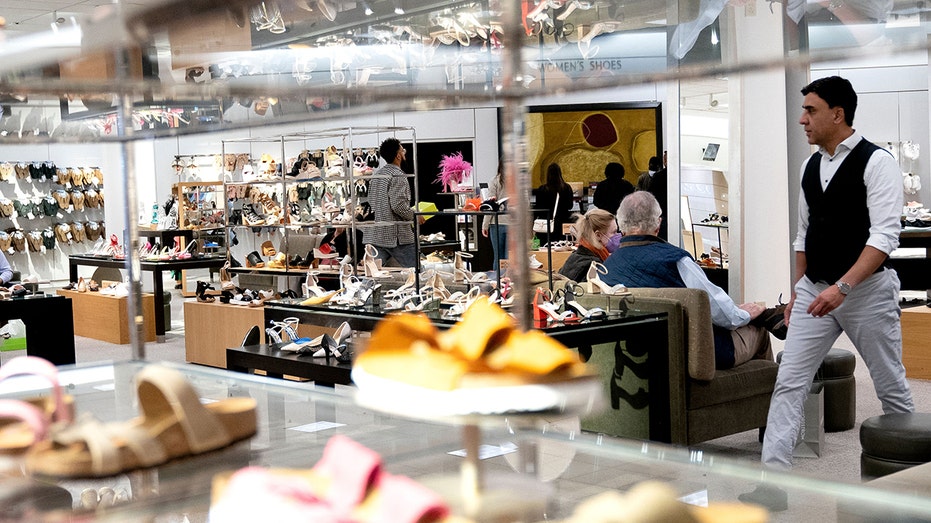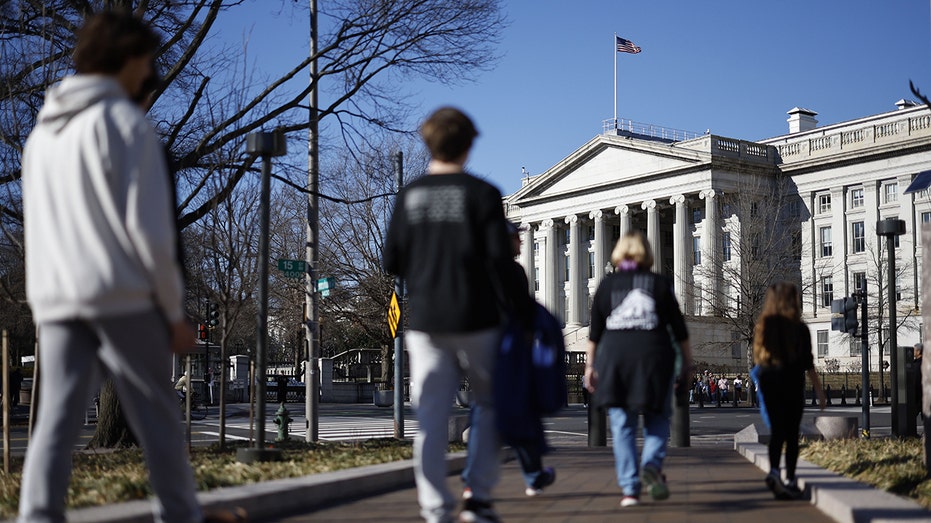Retail sales tumble more than expected in March as consumers pull back on spending
US economy shows signs of cooling as retail sales decline more than expected
Inflation is ‘entrenched’ in consumer services: Kenneth Rogoff
Former IMF chief economist Kenneth Rogoff joins ‘Mornings with Maria’ to discuss the U.S. economy as the Federal Reserve continues to fend off inflation.
Americans pulled back on spending at retail stores in March as demand cooled sharply in the face of banking turmoil, persistent inflation and high interest rates.
Retail sales, a measure of how much consumers spent on a number of everyday goods, including cars, food and gasoline, tumbled 1% in March, the Commerce Department said Friday. That is well below the 0.4% decline projected by Refinitiv economists and a marked drop from February, when sales fell 0.2%. It is the biggest decline since December.
Excluding the more volatile measurements of gasoline and autos, sales fell 0.3% last month. The figures are not adjusted for inflation.
"The long and probably slow slide in retail sales has begun, as consumers’ savings are mostly tapped out and inflation trumps rising wages," said Robert Frick, corporate economist at Navy Federal Credit Union. "But retail sales are still far above the pre-pandemic trend, even adjusting for inflation, so the slide is not yet a harbinger of recession."
HOW THE BANKING CRISIS COULD HAMMER SMALL BUSINESSES

Shoppers walk through a store at Tysons Corner Mall in Tysons, Virginia, on April 2, 2022. (STEFANI REYNOLDS/AFP via Getty Images / Getty Images)
Consumers spent less on big-ticket items like cars, electronics, appliances, furniture, clothing and at-home improvement projects including garden equipment. Gas sales slid 5.5% in March, the most since April 2020, as the cost of fuel plunged.
JAMIE DIMON WARNS BANKING CRISIS HAS RAISED ODDS OF RECESSION
Spending rose in just five of 13 retail categories last month, including bars and restaurants; online retailers; miscellaneous store retailers; health and personal care stores; and specialty hobby stores that sell items like sporting goods, musical instruments and books.
The slump in retail sales is mostly attributed to nearly two years of high inflation that has eroded Americans' savings, as well as the Federal Reserve's campaign to crush price pressures with a rapid series of interest-rate hikes. The data adds to growing evidence that the economy is quickly cooling off as borrowing costs rise.

Pedestrians walk near the U.S. Treasury in Washington, D.C., on Dec. 30, 2022. (Ting Shen/Bloomberg via Getty Images / Getty Images)
Staff at the Fed anticipate that higher interest rates, coupled with recent upheaval in the banking system, will tip the economy into a "mild" recession that takes about two years for recovery.
Consumers saw some reprieve last month as inflation showed welcome signs of cooling in March, with the consumer price index rising at the slowest pace in two years. However, core prices pointed to strong underlying price pressures that are still bubbling beneath the surface and could keep the Fed on track to raise rates for a tenth time at its next meeting in early May.
GET FOX BUSINESS ON THE GO BY CLICKING HERE
"Households are clearly feeling the pinch from rising interest rates and the extended period of high inflation and are reducing expenses to compensate," said Ben Ayers, Nationwide senior economist. "While job and income gains remain strong, the cracks in the consumer sector are widening and a negative shift in hiring activity could be the final blow to place the economy in a recession."





















